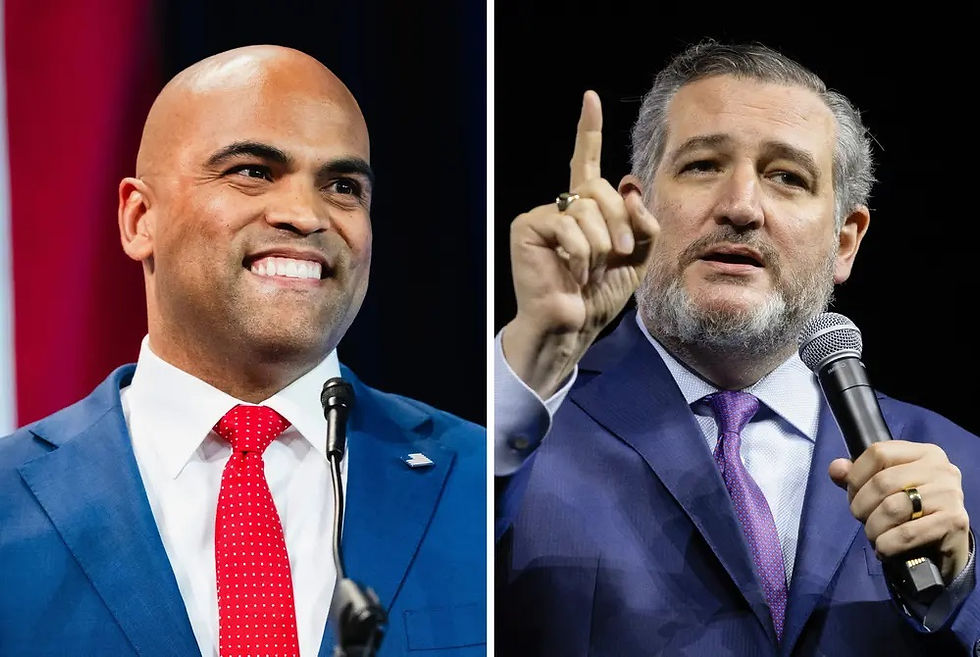Texas Senate Race: Ted Cruz Holds Narrow Lead Over Colin Allred in Heated Election
- Al Morris
- Oct 17, 2024
- 2 min read
The Texas Senate race between incumbent Republican Ted Cruz and Democrat Congressman Colin Allred is shaping up to be one of the most competitive and expensive in the nation. Recent polls show Cruz with a slight edge, leading by about 4 points, despite projections that he will lose in Texas’ largest metropolitan areas, including Dallas County, Harris County, Travis County, Bexar County, and Tarrant County.

Both candidates squared off in a one-hour debate televised by WFAA in Dallas, where Cruz, despite some early stumbles, notably when Allred pressed him on abortion, emerged as a well-prepared winner. Allred aimed to capitalize on Cruz's controversial reputation, particularly his stance on hot-button issues like abortion, but Cruz's debate performance ultimately solidified his standing.
Through the latest fundraising deadline, this election has broken records for the most money raised for a Senate race, with Cruz raising an impressive $76 million, $43 million of which has come in just the last two years. Allred, the former NFL player turned Congressman from Dallas, has raised $69 million in the last two years, making this race not only fiercely contested at the polls but also in terms of financial backing.
However, experts suggest that it’s not just the total fundraising that could determine the winner, but the amount of money raised through small-dollar donations (contributions under $200). Small-dollar fundraising is seen as an indicator of grassroots enthusiasm and public support, while large-dollar donations often reflect how well-connected a candidate is to wealthy donors and political elites. In this election, 49% of Cruz's funding has come from small-dollar donors, closely matched by Allred’s 50%, signaling strong bases of support for both candidates.
Geographically, both candidates have drawn substantial financial backing from within Texas. Allred has raised $10.8 million from his home state, slightly outpacing Cruz’s $9.3 million. While Allred's advantage in Texas funding is notable, Cruz’s widespread national support has helped him remain financially competitive.
Cruz, who has become one of the most polarizing figures in the U.S. Senate, is a prime target for Democrats seeking to flip a Senate seat in the deep-red state. His high-profile positions and frequent media presence have made him a magnet for Democratic challengers, and Allred is no exception. Democrats and progressive donors across the country see Cruz’s vulnerability, particularly after his near-defeat by Beto O'Rourke in 2018, as an opportunity to invest heavily in ousting him.
As the race heats up, Cruz’s slight lead and Allred’s significant support in urban areas suggest the final outcome could come down to voter turnout in Texas' rural and suburban regions. Both campaigns are ramping up efforts to galvanize supporters and solidify their chances in what is sure to be a closely-watched contest.

Kommentare